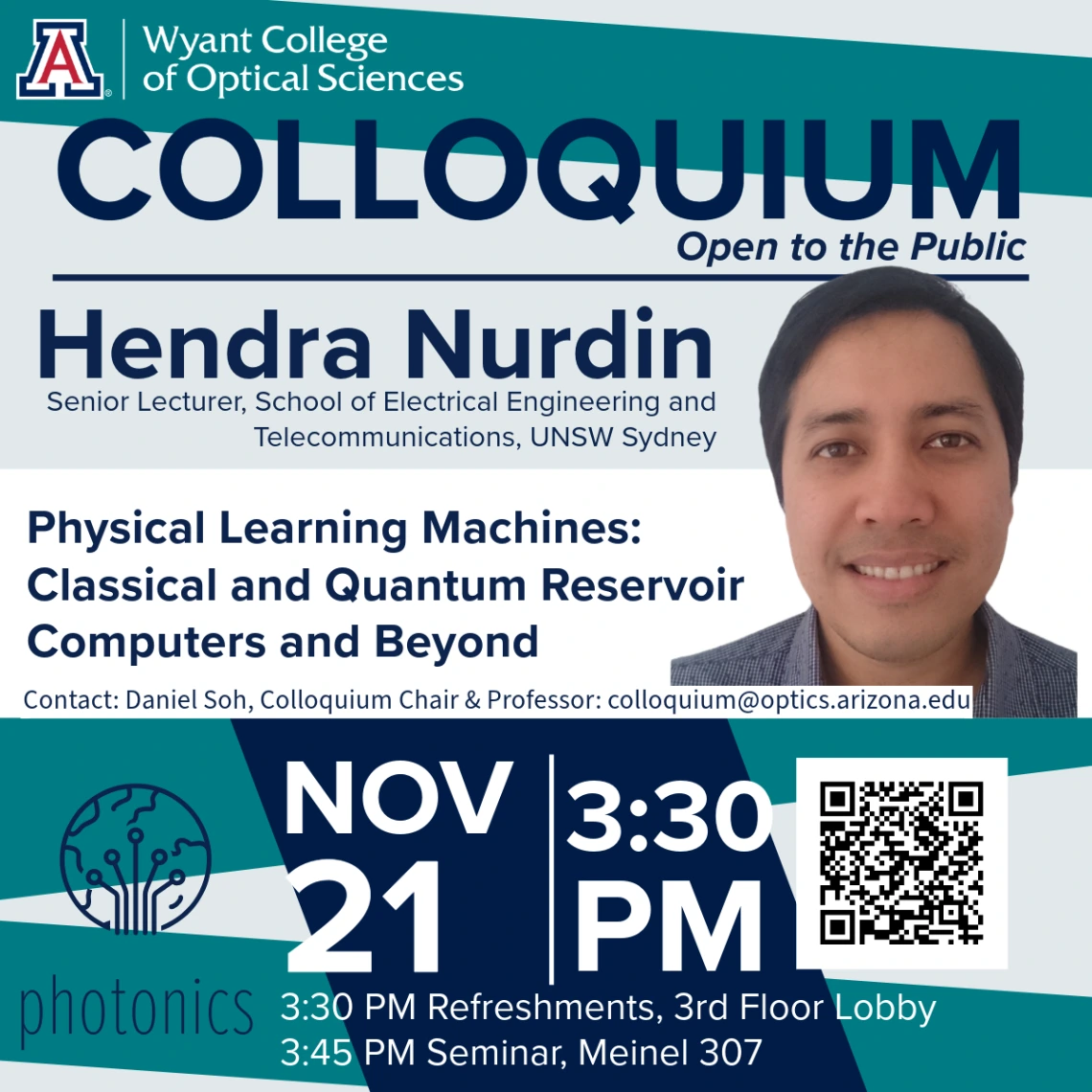
When
Where
Title
Physical Learning Machines: Classical and Quantum Reservoir Computers and Beyond
Abstract
Reservoir computing is a lightweight brain-inspired (neuromorphic) machine learning paradigm for temporal information processing (i.e., processing of sequential data) that is attractive because of its simple and fast optimisation/training yet was found to have surprisingly good ability to predict chaotic time series. Although originally conceived as an algorithm run on a digital computer, physical reservoir computing has emerged as an extension of reservoir computing that is run directly on a physical device rather than as a computer algorithm. The premise is that any physical system that possesses a set of properties can be turned into a reservoir computer without requiring detailed knowledge of the system parameters. In particular, optical systems have been attractive as physical reservoir computers and many optical realisations have appeared in the literature.
This colloquium will give a brief introduction to reservoir computing, an overview of its theoretical foundations, including the notion of a universal family of reservoir computers that is capable of approximating a certain family of nonlinear maps from input sequences to output sequences, as well as its inherent limitations. It will then motivate and touch on efforts by the speaker and his collaborators to exploit noisy near-term quantum computers as quantum reservoir computers. An example of a universal class of quantum reservoir computers and some experimental results will be presented.
Finally, the colloquium will conclude with a discussion of research directions for further development of quantum reservoir computers as well as research trends in the broader recent efforts on engineered physical learning machines going beyond reservoir computers.
Bio
Hendra I. Nurdin received a bachelor’s degree in electrical engineering from Institut Teknologi Bandung (ITB), Indonesia, a master’s degree in engineering mathematics from the University of Twente, The Netherlands, and a Ph.D. degree in engineering and information science from The Australian National University (ANU). He was a Research Fellow with the Department of Engineering, ANU from 2007 to 2008, and an Australian Research Council APD Fellow from 2009 to 2011. He is a currently a Senior Lecturer with the School of Electrical Engineering and Telecommunications, University of New South Wales (UNSW) in Sydney, Australia. Dr Nurdin is a coauthor with N. Yamamoto of the Springer research monograph “Linear Dynamical Quantum Systems: Analysis, Synthesis, and Control” (2017). He is an Associate Editor of the IEEE Control Systems Letters and IMA Journal of Mathematical Control and Information. His research interests include modeling and control of classical and quantum stochastic systems, and classical and quantum machine learning for temporal information processing.
A recording of this talk is not publicly available.
Can't Join Us In Person?
Register for the Zoom Webinar!
Subscribe to Upcoming Colloquium Announcements
Visit our website for future lecture dates and speaker information
